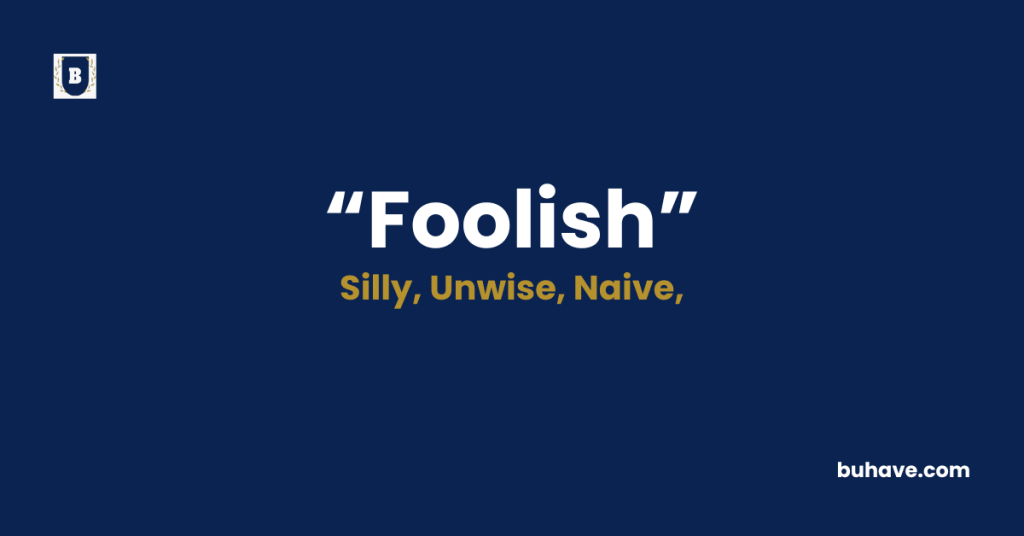The word Foolish (Adjective) refers to behavior or decisions that lack good judgment or sense. In this guide, you’ll learn the full definition, synonyms, antonyms, etymology, and real-life examples of how to use Foolish correctly in sentences.
Foolish Explained in Depth
A complete and detailed guide to the word Foolish including meaning, definition, examples, etymology, synonyms, and antonyms.
Meanings of Foolish
Foolish means showing a lack of wisdom, judgment, or sense. It often refers to actions or thoughts that are unwise, silly, or unreasonable.
Definition
Foolish describes someone or something that acts in a way that lacks intelligence, practicality, or seriousness. It often applies to decisions made without thinking through the consequences. For example, buying an expensive item you can’t afford might be seen as a foolish choice. In many cases, foolishness is linked with immaturity or impulsiveness.
However, the term can also be used playfully or lightly, such as in “a foolish joke” or “a foolish grin,” where it suggests silliness rather than real error. While it can be critical, it does not always imply malice or deep failure just a lapse in wisdom or practicality.
Etymology
The word “foolish” stems from the noun “fool,” which originated in Middle English, influenced by the Old French word fol meaning “madman” or “jester.” That, in turn, derived from the Latin word follis, meaning “a bag of wind” or something inflated, metaphorically used to describe a person lacking wisdom or seriousness. The suffix “-ish” was added to turn the noun into an adjective, describing characteristics of a fool. Over the centuries, “foolish” evolved from describing court jesters or entertainers to referring more broadly to unwise behavior or poor judgment. In literature and speech, it has often been used to highlight both minor absurdities and serious flaws in reasoning.
Example Sentences
- It was foolish to ignore the warning signs before the storm.
- She felt foolish for forgetting her best friend’s birthday.
- They made a foolish decision based on emotion, not facts.
Foolish Synonyms
- Silly
- Unwise
- Absurd
- Naive
- Ridiculous
- Reckless
- Imprudent
- Thoughtless
- Gullible
- Preposterous
Foolish Antonyms
- Wise
- Prudent
- Sensible
- Reasonable
- Thoughtful
- Intelligent
- Insightful
- Judicious
- Shrewd
- Logical
FAQs about Foolish
Here’s a FAQ-style guide about the word “Foolish”
1. What does it mean when someone is called foolish?
It means they are acting in a way that shows poor judgment or a lack of sense.
2. Is foolishness the same as being silly?
Not always. “Silly” can be playful, while “foolish” often suggests poor judgment or unwise behavior.
3. Can a smart person act foolishly?
Yes. Intelligence doesn’t prevent someone from making foolish choices in certain situations.
4. Is foolish always an insult?
It depends on tone and context. It can be used gently or humorously, but it often implies criticism.
5. How is foolish different from reckless?
“Foolish” suggests poor judgment; “reckless” adds danger or disregard for consequences.

















